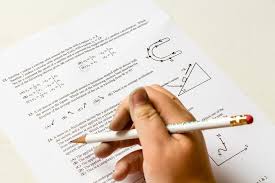
Traditional maths assessments often rely heavily on scores from standardised tests. While these scores provide useful data, they may not fully capture a student’s abilities, problem-solving skills, or conceptual understanding. To truly measure a student’s competence, schools are increasingly adopting holistic assessment methods. These methods offer a more comprehensive and accurate picture of student learning, helping educators make more informed decisions about curriculum planning and personalised instruction.
What is Holistic Maths Assessment?
Holistic maths assessment goes beyond the simple measurement of right or wrong answers. It evaluates a student’s ability to apply concepts, reason logically, and solve problems in real-world contexts. Methods such as performance-based assessments and open-ended problem-solving tasks allow students to demonstrate their thought processes and critical thinking skills.
In addition to performance-based tasks, holistic assessments may incorporate peer feedback, self-assessment, and project-based learning. These strategies help educators get a clear picture of student performance in maths, offering insights into their strengths and areas for improvement that standardised testing alone cannot reveal.
The Limitations of Test Scores
Relying solely on numerical scores to assess student performance can be problematic. Standardised tests often fail to consider different learning styles, language barriers, or test anxiety, all of which can affect a student’s performance. Furthermore, these tests may focus too narrowly on rote memorisation, neglecting more nuanced skills like critical thinking and creativity.
By incorporating multiple assessment methods, schools can account for a broader range of learning outcomes. For example, students who struggle with time-limited exams may perform better in project-based assessments that allow them to showcase their knowledge without pressure.
Incorporating Multiple Assessment Techniques
Schools can adopt a range of holistic assessment techniques to support diverse learners:
- Project-Based Assessments: These tasks allow students to apply mathematical concepts to real-world scenarios, fostering a deeper understanding of the subject. For instance, a project could involve designing a budget or calculating measurements for a model-building activity.
- Open-Ended Questions: These encourage students to explain their thought processes and demonstrate how they arrived at an answer, highlighting their reasoning skills.
- Mathematical Journals: Students can document their learning journey, reflecting on the concepts they’ve mastered and those they find challenging. This encourages self-awareness and accountability.
- Peer and Self-Assessments: These techniques help students build metacognitive skills by encouraging them to evaluate their own and others’ work.
Emphasising Conceptual Understanding
Conceptual understanding—the ability to grasp the underlying principles behind mathematical operations—is a critical component of holistic assessment. Students should not just memorise formulas but also understand why and how they work. By focusing on conceptual learning, educators can help students develop a more robust foundation in mathematics.
For example, instead of merely teaching students the formula for calculating area, teachers can encourage them to explore how the concept of area applies to real-world problems. This deeper engagement promotes better retention and application of knowledge.
Using Data to Inform Instruction
Holistic assessment strategies generate a wealth of data that can help educators identify patterns in student performance. For example, a universal early numeracy screening system can be an effective tool to assess foundational numeracy skills in young learners, enabling teachers to identify gaps in knowledge early on. By analysing this data, teachers can adjust instruction to meet the individual needs of their students. If assessment data reveals that a group of students struggles with fractions, teachers can modify lesson plans or offer additional support in that area.
Data from holistic assessments can also guide curriculum development and professional learning initiatives, ensuring that schools remain focused on improving student outcomes.
Collaboration and Professional Development
To effectively implement holistic maths assessment, educators need ongoing professional development. Workshops on assessment literacy, data interpretation, and alternative assessment methods can equip teachers with the skills they need to assess students comprehensively. Collaboration among teachers is also vital for sharing best practices and developing consistent assessment criteria across year levels.
Final Take
A holistic approach to maths assessment provides schools with a deeper understanding of student performance, going beyond test scores to evaluate critical thinking, problem-solving, and conceptual understanding. By incorporating diverse assessment methods, using data-driven insights, and prioritising professional development, schools can foster a more supportive and effective learning environment for students. Ultimately, these strategies help educators gain a comprehensive understanding of student performance in mathematics, empowering them to make better-informed decisions that support academic growth.
Write and Win: Participate in Creative writing Contest & International Essay Contest and win fabulous prizes.


